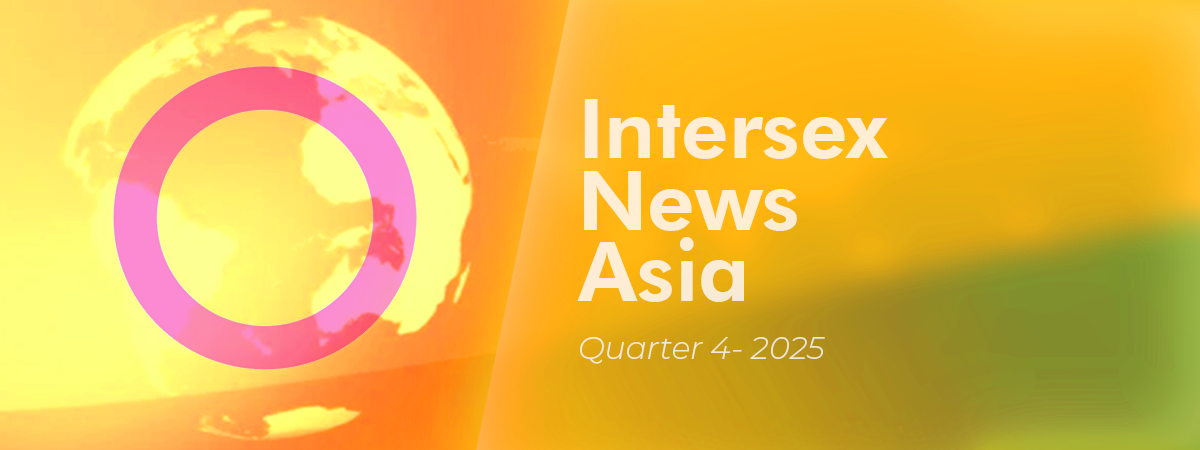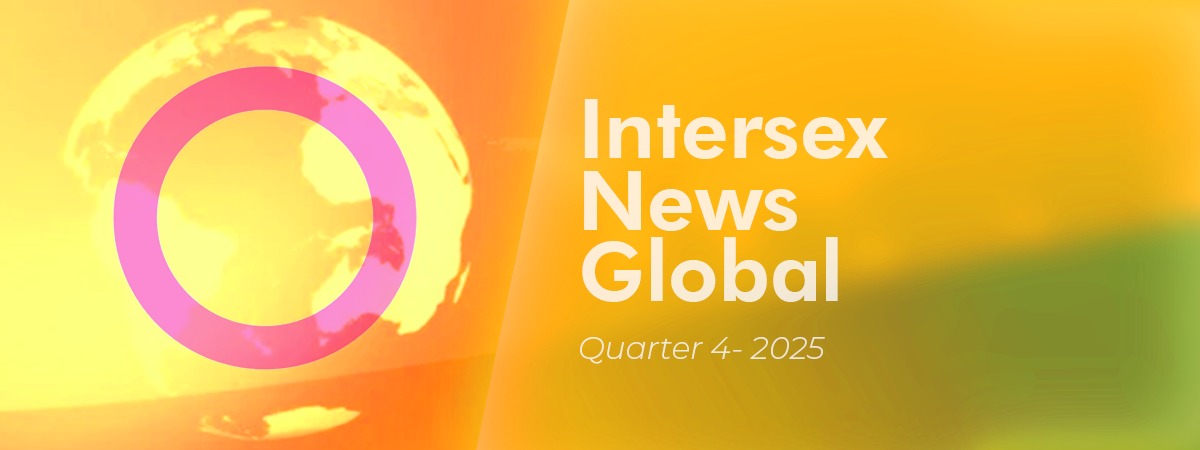On May 23, 2025, Intersex Asia hosted the “Intersectionality in Action: Bodily Autonomy Issues in the Intersex, Children, Women, Disability, and SRHR Movements” webinar. This was a platform for intersex activists, human rights advocates, and representatives from diverse movements to come together in dialogue. The discussions offered valuable insights into the shared and unique perspectives of different movements, highlighting the intersections of our struggles and charting out the collaborative direction for future movements.
What brings us together: Bodily Autonomy as a Universal Issue
Bodily autonomy emerged as a unifying theme across all represented movements. Whether addressing violations faced by intersex individuals, challenges in reproductive health, or the rights of children and persons with disabilities, the right to make decisions about one’s own body was one of the key themes in all speakers’ lines of work.
For the intersex movement, bodily autonomy has always been a core pillar, addressing non-consensual surgeries on intersex infants driven by binary gender norms. The SRHR movement similarly tackles bodily autonomy for marginalized genders, especially for accessing various healthcare services and challenging the male-controlled perspective. The disability rights movement, as highlighted by intersex activist Vino, underscores how intersecting identities can introduce extra layers of violations of bodily autonomy, particularly concerning healthcare access and societal stigma. For children’s rights advocates, bodily autonomy plays an essential role in children’s empowerment and protection, including intersex children.
The conversation served as a perfect baseline for future collaboration. Addressing body autonomy not only helps to bridge different sectors but also is very well aligned with the strategy of Intersex Asia for the next 3 years. But how about each sector’s unique perspectives and challenges?

Our unique challenges: Unique Challenges Across Movements
While the shared goal of bodily autonomy unites these movements, each also brings unique challenges shaped by its specific contexts.
For the intersex movement, the primary challenge lies in the lack of awareness and visibility. Across Asia, intersex terminology is not familiar, resulting in confusion between intersex and transgender identities. This often leads to inadequate policies that fail to address intersex-specific needs, as seen in South Asia.
The SRHR movement faces its challenges in securing access to reproductive healthcare and combating harmful gender norms, as pointed out by IPPF and Plan International. While these movements have made significant strides, there remains a need to ensure that intersex issues are fully integrated into their advocacy agendas.
The disability rights movement, as highlighted by Vino, grapples with the additional layers of marginalization faced by individuals with intersecting identities. This underscores the need for an intersectional approach that addresses multiple layers of oppression.
Children’s rights advocates shared a different perspective, focusing on the importance of education and awareness at an early age. A space for children to learn about bodily autonomy and develop the confidence to assert their rights is critical. However, addressing intersex issues within broader child protection frameworks is challenging, particularly in regions where intersex identities remain largely invisible.
With different challenges and perspectives from different sectors, we’re different pieces of the same pie. To move forward, it’s critical to include all sector’s perspectives as a whole. Cross-movement collaboration is more critical than ever.
Opportunities for Cross-Movement Collaboration
As a young network, Intersex Asia is inspired by the insights and solidarity shared during this webinar. We recognize the importance of building stronger alliances and potential for collaboration with partners across movements to address shared challenges and amplify marginalized voices. Key areas of opportunity include:
1. Knowledge & Capacity Building
- Joint learning sessions and cross-movement training to deepen understanding of intersex issues and intersectionality.
- Sharing expertise and resources to build collective capacity.
2. Policy & Joint Statements
- Developing joint position statements (e.g., regional adaptation of the Darlington Statement).
- Collaborative efforts to influence policy at national and international levels.
3. Awareness & Communication
- Combined educational campaigns and strategic communications to amplify visibility and address misconceptions.
- Tackling the conflation of intersex and transgender identities.
- Promoting a deeper understanding of bodily autonomy across all movements.
4. Inclusive Service Models
- Integrating intersex-inclusive approaches into service models by organizations like IPPF and Plan International.
- Developing healthcare protocols that respect bodily autonomy and training medical professionals for affirming care.
What’s next for us ?

This webinar was a powerful reminder that while our movements face unique challenges, we are united by a shared struggle for dignity, respect, and the right to make decisions about our own bodies.
IA Executive Director Hiker Chiu stated “By collaborating and sharing insights, we can create stronger alliances and amplify collective efforts to address systemic issues. This vision calls for sustained commitment and action from all movements represented in the dialogue.“
The conversation we started must not end here. We encourage everyone to take these insights back to their communities and organizations, continuing to build bridges and seek opportunities for collaboration. Together, we can create a world where every individual’s right to bodily autonomy is upheld, and intersex people are recognized, respected, and celebrated.
—————————-
Webinar Moderator
Webinar Speakers:
- Atty. Dana Mae Padre, President of Intersex Philippines
- Vino Dhanalakshmi Thangan Founder and Director of Voice of Intersex India (VOIS India)
- Cristina V. Lomoljo (Tina), Executive Director, BDEV Child Protection, Focal for Participation Rights of the UNCRC, Iligan City Local Council for the Protection of Children (LCPC)
- Ramil Andag ,Global Inclusion Specialist of PLAN International
- Sylvester Merchant (Sylvie) Regional Community Engagement & Networks lead, IPPF




